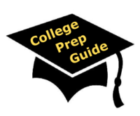Tom Kovic
College recruiting is complicated and has grown increasingly competitive. There is a lot that goes into developing and executing a successful plan of action, and the role of parents in college recruiting is a critical piece of the puzzle.
Parents play a significant role in the recruiting process. In my opinion, that role should be supportive, enthusiastic, but “indirect,” especially when it comes to communicating with college coaches.
Clarity
Begin the recruiting process by establishing clear goals, objectives, and timelines. Identify the college goal and work backward to the starting point of your plan.
You will notice “checkpoints” along the way that will eventually resurface as you navigate the college quest from the beginning. Whether it is the signing of the national letter of intent, the official visit, or the first phone call placed to the coach, you will begin to develop a checklist of “things to do.”
The role of parents in college recruiting should be simple but impactful. They can help their children envision the process and take an active part in creating it. Half the battle in reaching any goal is understanding the mission. Moving forward, create an educational yet fun approach to the process.
The more parents encourage their children to take an active role in controlling their destiny and executing the plan, the higher the chance they have in reaching their goals.
Team
Develop a group of key players who offer significant strength in specific areas of the recruiting process. Prospective student-athletes will most likely embrace the team approach. It demonstrates both helpful assistance while distributing recruiting assignments out to the area experts.
Parents who have identified and cultivated strong relationships with team members (college advisor, high school and club coach, etc.) will heighten their role in college recruiting. It lays the groundwork to propose specific roles that will be played out by each team member.
Parents should organize occasional team meetings at the house where the group can review regular progress in the college search and offer suggestions to keep the momentum moving forward.
Encourage Independence
College coaches will turn to high school and club coaches, guidance counselors, and colleagues to gather information about the prospects they recruit. In addition, they need to act as a resource for families as well. They want to be able to field questions from mom and dad, but most importantly, college coaches want to see the prospect for who he or she truly is.
Specifically, parents should encourage their children to be active and independent in the college quest. It drives proactive preparation, the development of communication skills, and fosters the courage to step up in a dedicated attempt to own the college recruiting process.
Remember, college coaches are looking for 3 key ingredients in a prospect: Strong students, impact athletes, and a personal character that demonstrates self-confidence and leadership. A crucial role of parents in college recruiting is to empower their children and encourage them to control their playing field.
Communication with College Coaches
Although prospects should assume direct responsibility for most of the interaction with college coaches, parents should be actively involved as well. Whether it is negotiating financial aid, requesting a preliminary evaluation in admissions, or asking questions concerning campus safety, parents should not hesitate to inquire on behalf of their children respectfully.
However, parents should yield in some areas of the college recruiting process, especially when our kids appear to stumble. At times our children will struggle or at a loss for words. However, college coaches are not looking at the stumble as much as they are looking for the recovery. Parents need to have faith in their kids to regroup and realign. Subsequently, allowing them to experience the “good struggle” will give prospects a greater appreciation of the role of parents in the recruiting process.
Red Flags
There are several parental red flags parents should avoid:
- In face to face interviews with college coaches, avoid answering questions that college coaches ask your children.
- Refrain from responding to phone and e-mail messages left by college coaches and directed to the prospect.
- Parents should review e-mails for proper grammar and sentence structure before being sent to college coaches.
- “Tough questions” should be timed appropriately. You do not want to approach the first meeting with a college coach asking for a scholarship! Remember, you want to develop sincere relationships with the coaches: Plant, cultivate, grow. Slow and steady wins the race.
We desperately want our children to succeed. However, many parents try to control situations, especially when our kids are struggling. College coaches recruit families as much as they recruit prospects, and the adage is true: “The nut doesn’t fall too far from the tree!”
Parents play an important role in college recruiting. Consequently, the best gift we can offer our children is the freedom to spread their wings and fly. Focus on everything positive and fun in the college search. When our children seem doubtful or frustrated, have faith in their resiliency to rebound and advance the quest with confidence and self-reliance.

Tom Kovic is a former Division I college coach and Founder/Principal at Victory Collegiate Consulting, where he provides individual advisement for families on college recruiting. For further information visit: https://victoryrecruiting.com
Copyright © 2020 Victory Collegiate Consulting. All Rights Reserved.
